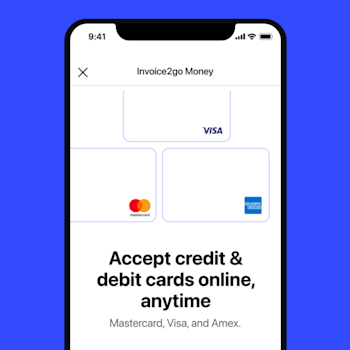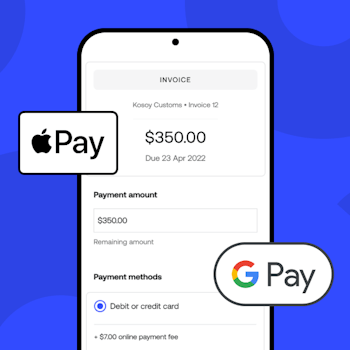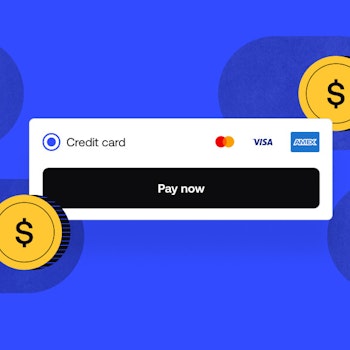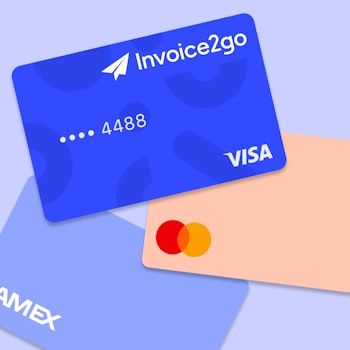
How to price your services as a creative freelancer (6 strategies)
Working as a freelancer isn’t always easy. Sure, Carrie Bradshaw may have made it look glamorous with her designer wardrobe and daily dining out. However, to make that life a reality, there needs to be a ton of behind-the-scenes work.
Even if you’re a master of your craft, when you work independently, you face unique challenges. You need to learn how to manage your books, improve your communication, and potentially overcome anxiety about money and your professional capabilities.
You have to balance bringing in new clients, delivering work on time, and ensuring that you get paid promptly. Maybe you find yourself wondering: Is there enough time in the day?
Still, freelancing can be a path to your ideal lifestyle. If you’re great at what you do and learn how to manage running a business, you can have job security, work with clients you love, set flexible hours, and be your own boss.
With approximately 1.1 billion people worldwide now freelancing, you’re not alone. It’s our mission at Invoice2go, a Bill.com company, to empower freelancers like you with the best tips to support your success. We want to help you avoid struggles and get up and running as quickly as possible.
Here are 5 freelancer tips to help you ensure you’re paid your paid fairly and on time. Let’s dive in!
1. Create a service list and connect with other freelancers
First, decide what specific services you want to offer. While this will likely change over time, research freelancers on sites like Upwork. Look at what are standard services and prices. Is there something you can offer that sets you apart?
Take some time to read freelancer tips about avoiding pitfalls. Reach out to our community Freelance Forum with your questions. Also, find freelancers who do the work you want to do on LinkedIn. Connect and ask them for advice. While it may feel awkward, many people are happy to answer a few questions over email or chat on the phone for a few minutes. A quick answer to a question from another freelancer can sometimes save you months of frustration.
2. Establish a healthy mindset for pricing your services
Knowing what to charge can be one of the most challenging parts of starting a freelance business. Be careful: You may think that setting low rates can help you win more clients. However, when you charge too little for your time, both you and your client will likely be unhappy.
Freelancer tips for charging by the hour
Most freelancers start out pricing themselves at an hourly rate. Here are a couple of tips when charging that way:
- Experts suggest charging between 2 – 2.5x the hourly equivalent of that work in a salaried role. This is to compensate for paid time off, health benefits, and other perks you typically receive at a 9-5. It also covers the cost of any software subscriptions, office equipment, transportation, and other work-related expenses.
- Your mindset matters. You may struggle with the confidence to charge what you’re worth. For example, if you’re used to getting paid $20 an hour, it may feel uncomfortable to ask for double that amount or more. However, you’re delivering a valuable service, so be sure to check any negative self-talk that comes up related to money.
Here are some other useful tips to help you decide the best hourly rate for you to start off with.
Freelancer tips for charging by the project
Charging by the hour isn’t always a perfect fit. In fact, as you become more adept at freelancing, you find that charging by the project works much better for you and your clients.
With hourly work, you might find yourself stretching out your work to earn more or delivering valuable work at too low a cost. Charge for the value you’ll provide to your client. This can allow you to work with less pressure for time – and your client can know upfront exactly how much they’ll be paying.
Also, take a deposit. It’s always appropriate, and 30% – 50% is standard.
Established people in your industry can be the greatest resource. Kate Toon, for example, has invaluable information for what to charge as a freelance copywriter. If you ever get stuck, get in touch with a trusted mentor or someone in our community to help you.
3. Research your clients and don’t be afraid to ask questions
While it’s exciting to have a potential new client come on board, make sure they’re a good fit. The beauty of being a freelancer is that you choose your clients.
When working with more prominent companies, review websites like Glassdoor are useful for finding out what a company is like. If they treat employees poorly, they’re probably going to be just as bad – if not worse – towards a contractor.
Go with your gut. If you feel uncomfortable taking on the work, politely let say it isn’t a good fit – and move on.
Once you decide to go ahead, get your client to sign a contract. Sites like Upwork have legal agreements built-in. However, suppose you’re working outside of an official freelance site. In that case, avoid informal arrangements. They can lead to stress and frustration – especially if you need to chase down payment.
Big companies will likely have a legal department draw up a contract for you. In other cases, hiring a lawyer is a sound – but more expensive – investment. Resources like Lawpath are an excellent place to start with free and inexpensive resources.
Also, before you start a project, ensure you have a clear brief. Knowing the exact scope of work beforehand will save you stress down the road. If something isn’t clear, don’t hesitate to ask your client to jump on a call or clarify via email.
4. Make it easy for your customers to pay
Once you set your services and rates, the next step is to consider how you want to take payment. Simplifying client payment helps you get money in your pocket faster. For example, if you’re an Invoice2go subscriber, you can allow your clients to pay via PayPal or a credit card right through the email invoice. You also send automatic invoice reminders to your clients.
It’s a good idea to invoice at regular intervals, particularly with ongoing projects. This habit shows your value and keeps your project top-of-mind for your clients. Additionally, it mitigates the risk of working on a project and not being paid a large amount of money promptly.
5. Focus on building lasting relationships
You don’t need a ton of clients to run a successful freelance business. In fact, just a few excellent repeat customers can be all you need. Keep working on building your customer service skills – they’re essential to running your business.
Especially if you’re working with a larger organization, establish a relationship with the payroll department. This will help you figure out the right time to invoice. Also, if you ever struggle to get a hold of your primary contact, you’ll still have someone to follow up with.
If you have outstanding invoices, follow up regularly. Sometimes there are glitches and lapses in communication – even with great clients.
If, however, you encounter a client that doesn’t want to pay for work you’ve completed, apps like Collectmore – and legal agencies – can help you recover outstanding payments.
Remember: there are many clients out there that will pay you on time and in full. If you repeatedly experience problems getting payment from a client, don’t be afraid to move on.
6. Communicate in a way that demonstrates high value
From writing a winning job proposal to talking on the phone to delivering your final work, your language dramatically impacts your success. We recently shared an article about how women’s choice of language undermines them in business – but this advice can be relevant to anyone.
One of the most important freelancer tips is to know that the way you talk about your work helps determine the perceived value you offer. Try to always present a positive frame to your clients.
If you experience conflict over the cost of your work, stand your ground. Stay strong if a client tries to ask for discounts or questions your value – and don’t be afraid to walk away if it isn’t a good fit. If a customer is ever rude or breaks your agreement, stay professional with your language and behavior.
When it’s time to invoice, confidently request what you’re owed. You’ve earned it and don’t need to feel guilty asking.
Don’t worry if you feel intimidated. It’s is natural to feel that way and we hope these freelancer tips help. Remember that you were hired for your professionalism and expertise. You’re worth it. By setting clear prices and expectations, you’ll avoid problems down the road. Charge for the value you’ll deliver and don’t undersell your service. If you ever feel lost or have doubts, reach out to a mentor or someone in our community for help.
Also, to boost your confidence before hitting send or making that call, try a superhero pose. It might feel funny, but research shows that this technique can actually help.
For more useful freelancer tips on how to get paid what you’re worth and more, join our Facebook group. We don’t want you to miss out on other helpful content that can help you be the freelancing boss you were meant to be.
Related Articles

How to accept credit card payments on Invoice2go in 3 simple steps

Accept payments online via Apple Pay and Google Pay

Must-not-miss write-offs as you wrap up 2022 year-end finances

5 ways accepting credit and debit card payments helps your business stay resilient

4 easy ways to increase cash flow today

What is Small Business Saturday and why is it important?
The features and surprising benefits of a well-designed packing slip
